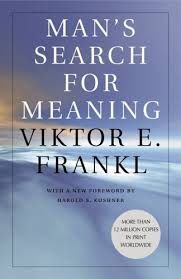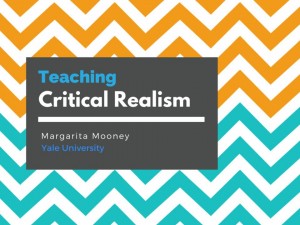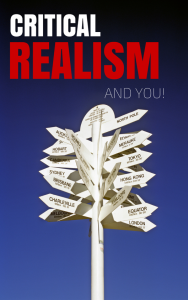This post was originally published on my homepage, margaritamooney.com, on September 3, 2015.
Is Viktor Frankl’s life a story of resilience or vulnerability? It’s both, I think. Frankl survived the Nazi concentration camps and went on to an influential career as a psychiatrist and writer. Yet, he never forgot how his experiences of pain and suffering formed his own social ethic. As he writes in the epilogue entitled “The Case for a Tragic Optimism”, added to the 1984 edition his famous memoir, Man’s Search for Meaning:
“After all, “saying yes to life in spite of everything,” …presupposes that life is potentially meaningful under any conditions, even those which are most miserable. And this in turn presupposes the human capacity to creatively turn life’s negative aspects into something positive or constructive. In other words, what matters is to make the best of any given situation. “The best,” however, is that which in Latin is called optimum—hence the reason I speak of a tragic optimism, that is, an optimism in the face of tragedy and in view of the human potential which at its best always allows for: (1) turning suffering into a human achievement and accomplishment; (2) deriving from guilt the opportunity to change oneself for the better; and (3) deriving from life’s transitoriness an incentive to take responsible action.”
Similarly, in a paper I’m working on, I explained how I learned that resilience and vulnerability aren’t opposites: they often go together. I’m particularly interested in further developing the important point that resilience and vulnerability aren’t only about personal outcomes, but about how our experiences of suffering form a calling to take responsible action for others–our close kin, neighbors, countrymen and women, and complete strangers. Frankl modeled this ethic in his own life, and taught the same ethic in his psychiatric profession. I admire Frankl because he sought to live a coherent ethic in his professional and personal life, not separating out his theories from how he lived his own life. Many social scientists fall into the trap of using theories of human nature–such as humans are driven by self-interest, status, and power–that they would never apply to their own behaviors.
You can hear more about my thoughts on virtue and vulnerability in this presentation I gave in July at the International Association of Critical Realism Annual Meetings held at the University of Notre Dame.
Click her to hear my talk “Vulnerabilty and Virtue.”
The abstract of my paper is below. If you would like to read a draft of this paper, please email me.
Abstract for Margarita Mooney, “Vulnerability and Virtue”:
This paper is part of a larger book about the lived experiences of 26 young adults who have experienced traumatic life events. This paper uses 4 of the 26 life history interviews to show how critical realism provides a better metatheoretical framework to understand the complex causality behind experiences of mental health disorders and addiction I encountered in my interviews. I draw on virtue ethics and realist hermeneutics to argue that social science approaches to mental health and addiction should not stop at analyzing their causes or treatments, but need to ask about the moral purpose that guides people’s lives. I further argue that overlooking that vulnerability is an enduring part of the human condition has limited the ability of social science to adequately understand the struggles of people with mental illness and addiction.
Because my interviews elicited narratives that connect events and emotions across time, these narratives illustrate the complex, contingent and conjunctural nature of causality that is often overlooked in many approaches to mental health and addiction. As with any method, the knowledge gained from interviews is limited and potentially fallible. But rather than falling into skepticisms about our ability to access reality through interviews, I maintain a realist stance towards lived experiences without necessarily assuming all experiences can be treated as facts. Interviews challenge those of us with a certain kind of authority as researchers to not simply jettison what people say as fallible and explain their lives with our own theories. Taking seriously what people say about their experiences of the world is one important way science advances because people can challenge the frameworks of science we use. For example, my interviews led me to question whether resilience and vulnerability are two opposite ends of a spectrum or can exist alongside one another. Because interviews reveal the complex causal forces in any person’s life, they remind us that scientific explanations should not be reductionistic. The interviews I conducted combined a scientific approach (selecting interviewees based on criteria of theoretical interest, developing a questionnaire based on theoretical expectations) and a humanistic, artistic, and highly interactive, dramatic approach about each person’s unique meanings and interior struggles.












